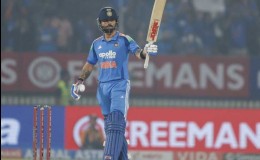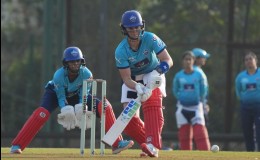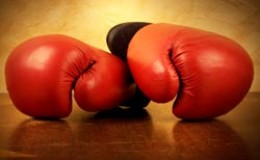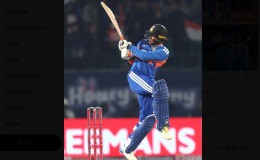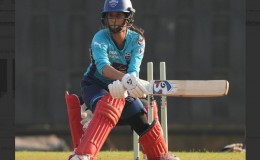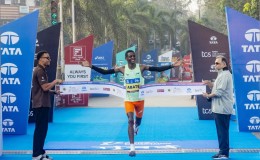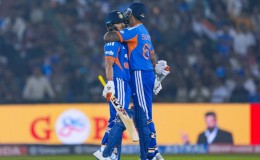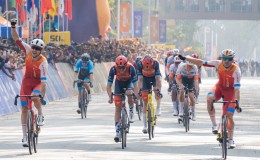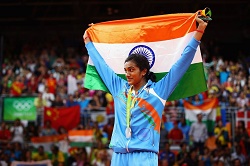 Let us begin with a small quiz: More than a hundred Indian athletes participated in the Rio Olympics 2016. How many names do we remember?
Let us begin with a small quiz: More than a hundred Indian athletes participated in the Rio Olympics 2016. How many names do we remember?
Ten, perhaps, including the badminton players, wrestlers and Dipa Karmakar's. Twenty more, maybe, if you are a keen follower of other sports and Indian hockey.
India finished 67th on the medal tally, winning a silver and a bronze medal. A handful of athletes fought till the very end for a podium finish. But, except for a few individuals, the rest of the Indian contingent just made up the numbers. One medal for every 60 athletes and just two for a country with around 1.3 billion people is a cause of concern.
Yes, it is important to contest. But participation for participation's sake has never been the Olympic motto. It clearly states: faster, higher, stronger!
On that count, India's performance was miserable. Every four years the Indian contingent goes to the Olympics only to erase the gains it made in the previous years, to destroy its own legacy.
In 1960, Milkha Singh became the first Indian to come close to an Olympic medal. At Rome, he missed the bronze only by a whisker. How many Indian men have since reached the finals of an individual track event?
Twenty four years after– and the Indian story at Olympics actually looks like some mathematical sequence – PT Usha entered the finals of the 400m hurdles at the Los Angeles Olympics. Like the 'Flying Sikh', the 'Payyoli Express' too missed out on a medal by a nano-second.
How many Indian women have since come close to a medal in a track event? This year, Lalita Babar became the first Indian athlete to run in a track final after 30 years. But she barely managed to figure in the top 10, coming in several hundred yards behind the eventual winner.
If the fastest woman in India succeeds, it will be a breakthrough for Indian sport.
The world's second most populous nation has the worst Olympic record in terms of medals per head.
In the past three decades, it has won only one gold medal - for the men's 10m rifle in 2008.
In London, in 2012, it bagged its best haul, six medals, or one for every 200 million people.
In 2008, it got just three medals. Before that, it was lucky to come home with a single medal.
Compare India's performance with minnows such as Grenada and Jamaica, which regularly get a medal for every couple of hundred thousand people.
So why isn't India punching its weight?
One reason is undoubtedly money.
India, despite its space programme and burgeoning population of billionaires, is still a very poor nation in terms of per capita income, and sport has never been a priority for the government, according to Shiva Keshavan. Keshavan is far and away India's greatest Winter Olympian.
He competes in luge, a kind of super-fast sledge. In two of the past five Winter Games, he was the only Indian to qualify, the only member of a team of one. Yet his ticket to Sochi was paid not by the Indian government but by crowd-funding.
And the lack of government - or any other - funding has also seen Keshavan adopt an eye-poppingly dangerous training regime. "At one point I couldn't sustain my career. I couldn't go for training, I couldn't go for competitions because I didn't have the money for that, so I started looking for sponsorship. And I actually went to 100 companies before one of them said yes," says Keshavan.
The Indian Olympic Association admits the country has not always done enough to support its athletes, but says there is more to India's sorry performance than just a shortage of cash or organisation.
Its head, Narayana Ramachandran, says sport is rarely at the top of anyone's agenda - and that includes athletes and their families. "Sport has always taken a back seat vis a vis education," he says, adding, “Most Indian families would prefer their children became dentists or accountants than Olympians.”
"Families tend to give their children more education. The view is concentrate on education, rather than sport. The basic feeling is that sport doesn't bring the money that is required to run a family,” he says.
India's cultural and caste traditions play a role too, according to Prof Ronojoy Sen, of the University of Singapore. He has written a book on the history of sport in India and believes the country's poor Olympic record has deep roots. “Indians have traditionally seen themselves primarily not as individuals, but as members of their caste, tribe or region,” he says.
Even when people excel in sport, they are often discouraged from pursuing it to top levels, by their families and wider community. And social stratification has meant different castes tended not to play sport together.
"The lower castes constitute the bulk of India's population, and these lower castes are also the ones who don't have access to education, don't have access to good nutrition, health,” Prof Sen says, adding, "That has meant that a large part of India's population hasn't been able to take part in sport, and hasn't had access to sporting facilities."
There is one sport in which India does, of course, excel: cricket. The huge money professional teams can invest means the best athletes are almost inevitably drawn towards the wicket, draining the pool available for other sports.
Now, private companies are stepping in to try to fill the gaps in funding for Olympic sports.
They are following the example of countries such as Australia and the UK, which have dramatically increased their medal count by investing in elite selection and training programmes.
Maneesh Bahuguna, of Anglian Medal Hunt, which is funding a number of predominantly underprivileged athletes, including Dutee Chand, believes its efforts will - in time - deliver results.
"What we bring to the table for these athletes is the ability to bridge the gap between those best practices that are unavailable to them otherwise and the final performance at the Olympic Games," Bahuguna says, adding, "We improve their conditioning, physical and mental, by leaps and bounds."
India fielded its best-trained and biggest-ever team in Rio. It hoped to deliver on the promise of the country's vast population, reaping rewards on the winner's podium.
At every Olympic Games, rivals China and Russia walk away with multiple gold medals. For fans in India—one of the world's most populous nations and fastest growing economies—the event is an exercise in despair.
India has managed just one gold medal since 1980, when shooter Abhinav Bindra became the first individual to win gold for his country at the 10 meter air rifle event in 2008. The country's previous gold medals, eight between 1928-1980, were all in field hockey.
To put India's historic performance in context, Michael Phelps has won as many medals on his own as Team India has managed since 1900.
Hopes were high running into the Rio Olympics after the country snagged six medals in London in 2012 and sent its largest ever contingent to this year's event. The shallow medals haul has, therefore, sparked debate on the likely reasons.
The nation boasts immense human diversity, with limbs and muscles of all sizes, so race or genetic characteristics aren't a valid explanation, said Anirudh Krishna, professor at Duke University, and co-author of a 2008 paper called 'Why do some countries win more Olympic medals?'
“High poverty levels aren't a sufficient reason either, seeing as other countries with low levels of per-capita income, such as Kenya and Jamaica, consistently fare better,” he added.
"India does not have a sports culture," explained Boria Majumdar, a leading Indian sports scholar who's authored numerous books on the topic. “Indian athletes who have achieved international success are exceptions rather than products of the country's sports system,” he said.
"Unless there is a synergized sports culture you will never win a string of medals. A fundamental overhaul is needed and urgently so."
Indeed, education tends be the highest priority for the average Indian household instead of extra-curricular activities such as sports.
A popular Hindi saying roughly translates to "if you study hard you will live like a king but if you play sports you will ruin your life."



